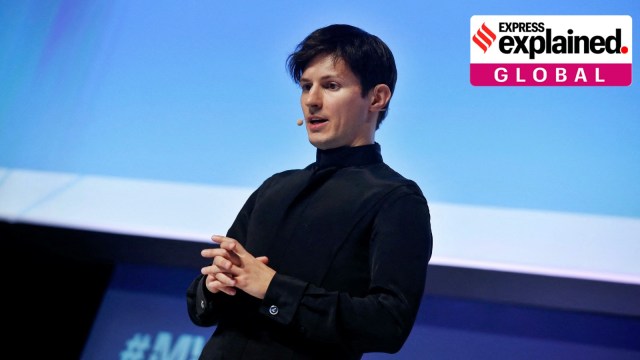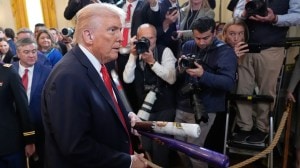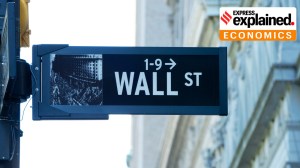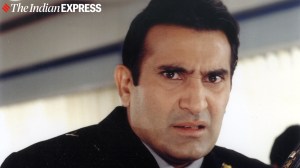Authorities in France have arrested Pavel Durov, the co-founder and CEO of Telegram, for “allegedly allowing a wide range of crimes due to a lack of moderators on [the secure messaging app] and a lack of cooperation with police”, Reuters and other media have reported. Late on Wednesday (August 28), preliminary charges were framed against Durov.
French President Emmanuel Macron posted on X that the arrest of Durov, who was detained at Le Bourget airport near Paris on August 24, was not a “political decision” as some Russian leaders have alleged.

While France remained committed to the freedom of expression and communication, these “freedoms are upheld within a legal framework, both on social media and in real life, to protect citizens and respect their fundamental rights”, Macron said.
Story continues below this ad
The official Telegram handle on X posted it was “absurd” to hold a platform or its owner responsible for the abuse of that platform. The Durov case is the latest instance of national governments and Internet companies clashing over the regulation of content posted on social media apps and websites.
Who is Pavel Durov, the founder of Telegram?
Durov, 39, was born in the USSR and went to St Petersburg University in Russia. He co-founded a social media app called VKontakte, which became popular in Russia, leading to his being described as the “Mark Zuckerberg of Russia”.
Durov reportedly left Russia in 2014 after the authorities told him to provide encrypted data of users, including Ukrainians. “It was a bit painful because my first company was my baby,” Durov said in an interview in April this year. “But, at the same time, I understood that I would rather be free; I wouldn’t want to take orders from anyone,” he said.
In 2013, Pavel and his elder brother Nikolai founded Telegram, positioning the app as being intensely focused on user privacy. The app allowed large groups with up to 2,00,000 members, and synced with multiple devices — features that gave it an edge over apps such as WhatsApp.
Story continues below this ad
Today, Telegram is said to have more than a billion users worldwide. It is headquartered in Dubai, and is funded personally by Durov, who has made a large fortune in cryptocurrency, according to Western media reports. Durov is known to have dual French and Emirati citizenship, but a recent report by the Associated Press said he retains his Russian citizenship as well.
Durov himself rejects suggestions that the widespread use of Telegram by Russian officials is evidence of his continuing links with the Kremlin. However, when the Financial Times asked him for his view on the Russia-Ukraine war earlier this year, he stonewalled: “Let’s not go there”.
Durov was detained in France after he landed from Baku, Azerbaijan where, the FT noted, President Vladimir Putin was also present at the time. However, the Russians have said that Putin did not meet him, and Telegram says he has “nothing to hide”.
What has he been charged with in France?
The AP said that preliminary charges against Durov relate to ‘‘complicity in managing an online platform to allow illicit transactions by an organized group,” which can lead to sentences of up to 10 years in prison and a 500,000 euro fine.
Story continues below this ad
The AP report further added that ‘‘preliminary charges under French law mean magistrates have strong reason to believe a crime was committed but allow more time for further investigation.” It also means Durov cannot leave France pending investigation.
The French newspaper Le Monde earlier reported that Durov’s arrest was linked to “proceedings accusing Telegram of complicity in numerous cases linked to drug trafficking, support for terrorism and cyberstalking”.
According to the report, OFMIN, a French agency responsible for preventing and combating violence against minors, had “discreetly launched an investigation into the dissemination of child pornography on Telegram”. Other offences were added to the investigation later.
The FT noted that Durov’s French nationality may have allowed prosecutors to claim jurisdiction over him. A specialised unit called ‘J3’ that functions within the Paris prosecutor’s office has developed great expertise in investigating cyber criminality, the FT said.
Story continues below this ad
The high degree of privacy on Telegram has allowed some users to sell drugs and scam people online through the app. Online safety experts have long flagged the use of the app by criminals, hackers, and extremists who are far less welcome on platforms owned by Google or Meta.
“On Telegram it seems to be actual crimes going on, so it was also mind-boggling how much they seemed to get away with this,” Megan Squire, the deputy director for data analytics at the Southern Poverty Law Center’s Intelligence Project, who monitors more than 500 of the approximately 30,000 extremist groups active on Telegram, told the FT.
The same report quoted Sam Woolley, a professor and disinformation expert at the University of Pittsburgh, as saying there is “deep-seated mistrust” of Telegram in France ever since it was used by terrorists to coordinate the 2015 Paris attacks in which 130 people were killed.
“Durov has again and again flouted specific [government] requests . . . as well as ongoing concerns about terrorism,” Woolley told the FT, adding that “You haven’t seen the same wilful disobedience from firms like Meta.”
Story continues below this ad
What about concerns that Durov’s arrest is an attack on free speech?
Russian government officials have expressed outrage at the French action, and some have said it exposes the West’s double standards on freedom of speech, the AP reported. Russia has been denied consular access to Durov, according to the Russian Embassy in Paris.
Free speech advocates have accused France of “overreach”, and some powerful voices on the Internet like Elon Musk have portrayed Durov as a free speech icon. Former US National Security Agency contractor-turned-whistleblower Edward Snowden posted on X, “The arrest of Durov is an assault on the basic human rights of speech and association.”
Durov had said in April that some governments had sought to pressure him to share information, but the app would stay away from “geopolitics”, Reuters reported.
In his interview to the FT earlier this year, he had said, “In some markets, Telegram is one of the few remaining free platforms where people can express themselves,” noting that it is used by protesters, human rights advocates, and refugees.
Story continues below this ad
In its FAQs section, Telegram says “We have to process legitimate requests to take down illegal public content (e.g., sticker sets, bots, and channels) within the app.” However, “this does not apply to local restrictions on freedom of speech,” it says — clarifying that “if criticizing the government is illegal in some country, Telegram won’t be a part of such politically motivated censorship”.
How have other jurisdictions dealt with the seeming contradiction between promoting free speech and controlling crime online?
Governments seeking to regulate hate speech and illegal activities have earlier acted against Meta (which owns Facebook, WhatsApp, and Instagram), X, and other tech giants. Earlier this year, a judge of Brazil’s Supreme Court ordered X to act against accounts spreading false disinformation; X owner Elon Musk, after protesting vehemently, shut down X in the country. Telegram too, faced a temporary ban in Brazil for not cooperating with an investigation into neo-Nazi chat groups.
In India, governments have expressed deep concern over the problem of fake news on social media, and have taken up the issue with WhatsApp and X.








































